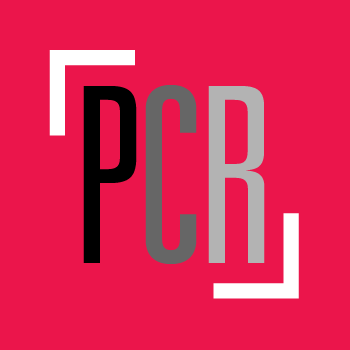Photographic Cultures is connected to a network of research groups.
The Developing Room: The Developing Room is a working group that was co-founded by Tanya Sheehan (Colby College) and Andrés Mario Zervigón in 2008. The group is affiliated with the Center for Cultural Analysis at Rutgers, The State University of New Jersey.
Photographic History Research Centre. The Photographic History Research Centre (PHRC) has a unique approach to photography and its social and cultural manifestations. It undertakes innovative research on photography and its practices from the early nineteenth century to the present day. It is committed to moving beyond disciplinary boundaries to explore the multiple strands of photography’s history, approaching it as an interconnected set of social and cultural processes, and as a visual economy which embraces the photographic industry, networks of photographic knowledge, science and technology, aesthetic, evidential and informational values and institutional practices. Contact Dr. Kelley Wilder, Assoc Prof. Gil Pasternak and Dr. Beatriz Pichel: phrc@dmu.ac.uk PHRC De Montfort University, Leicester, UK.
Powerhouse Photography: An ongoing series of programs, commissions, acquisitions, publications, learning and research activities dedicated to the promotion and development of photography in Australia. Powerhouse Photography aims to amplify the profile of Australian photography and lens-based media through an ongoing series of programs, publications, learning and research activities. This initiative supports photographers through commissions, acquisitions, and national and international engagement opportunities. Powerhouse Photography also presents an opportunity to revisit the Powerhouse’s extensive photographic collections through programs, commissions, research and digital engagement. Powerhouse Photography is supported by funds generously donated by the Australian Centre for Photography.
By/For Photography & Democracy: This initiative is a new collaborative partnership between three photographic historians, Dr. Tom Allbeson, Dr. Colleen O’Reilly, and Helen Trompeteler. Our collective investigates photography’s assumed democratic credentials as an art form and a medium of mass communication. We believe a historical perspective on the complex relationship between photography and democracy is critical to understanding how the medium and related visual technologies can address the social and political issues of our time.
The Photographic Situation: Inspired by Ariella Azoulay’s writing on the event of photography, The Photographic Situation investigates the relationship between affect and photography’s political efficacy. The project links scholars in the US, Canada and the UK. It is funded by the Arts and Humanities Research Council (AHRC) in the UK, and the Social Science and Humanities Research Council in Canada.
Photographic Memory Workshop (New Haven, CT): The Photographic Memory Workshop hosts and fosters community building, collaborative, interdisciplinary discussion among students, faculty, staff, journalists and artists on issues concerning photography and personal, social and political memory. Talks, trips, gallery visits, presentation of working research papers, conference sessions, visits to archives and discussions with photographers comprise the program. Contact: Laura Wexler, Yale University
Dutch Photography Working Group: (Depth of Field, Sweden). The Dutch Photography Working Group, convened by Marta Zarzycka and Martijn Kleppe brings together academics and professionals to exchange ideas related to photojournalism, documentary photography, art, and photographic theory. We acknowledge an increasing cultural interest in the study of photographs and we hope to contribute to a growing understanding of the possibilities of research with, on, and by photography.
PhotoCLECC Photographs, Colonial Legacy and Museums in Contemporary European Culture: (PhotoCLEC) asked “what is the role of the photographic legacy of colonial relations in the identity of a fluid and multi-cultural modern Europe and its global relations?” It focused on museums and the use of such photographs in museums – their displays and their collections – as major and influential vectors of public history.
North East Photography Network NEPN: NEPN was established in 2009 to promote and develop photography in the North East of England and beyond. Working with photographers, artists, curators and a wide range of cultural partners, we aim to create a lively and informed context for photographic activity and to encourage new audiences for photography. NEPN is hosted by and is an initiative of the Northern Centre of Photography at the University of Sunderland.
Lieven Gevaert Research Centre for Photography (Belgium): Named after the pioneer of the photography industry in Belgium, Lieven Gevaert, the Lieven Gevaert Research Centre for Photography, Art and Visual Culture was founded in 2004. The Lieven Gevaert Centre (LGC) is a joint collaboration between the KULeuven and the UCLouvain. It is based in the Faculty of Arts of the KULeuven and the Institute of Research in Culture (INCAL) of the UCLouvain. The primary aim of the LGC is the study of photography, art and visual culture.
History and Theory of Photography Research Centre (UK): Formally established in 2012, the History and Theory of Photography Research Centre is based in Birkbeck's School of Arts, and is led by Professor Lynda Nead and Dr Patrizia Di Bello, supported by a steering committee. The Centre has links with museums in London, and supports teaching and research on photography.
